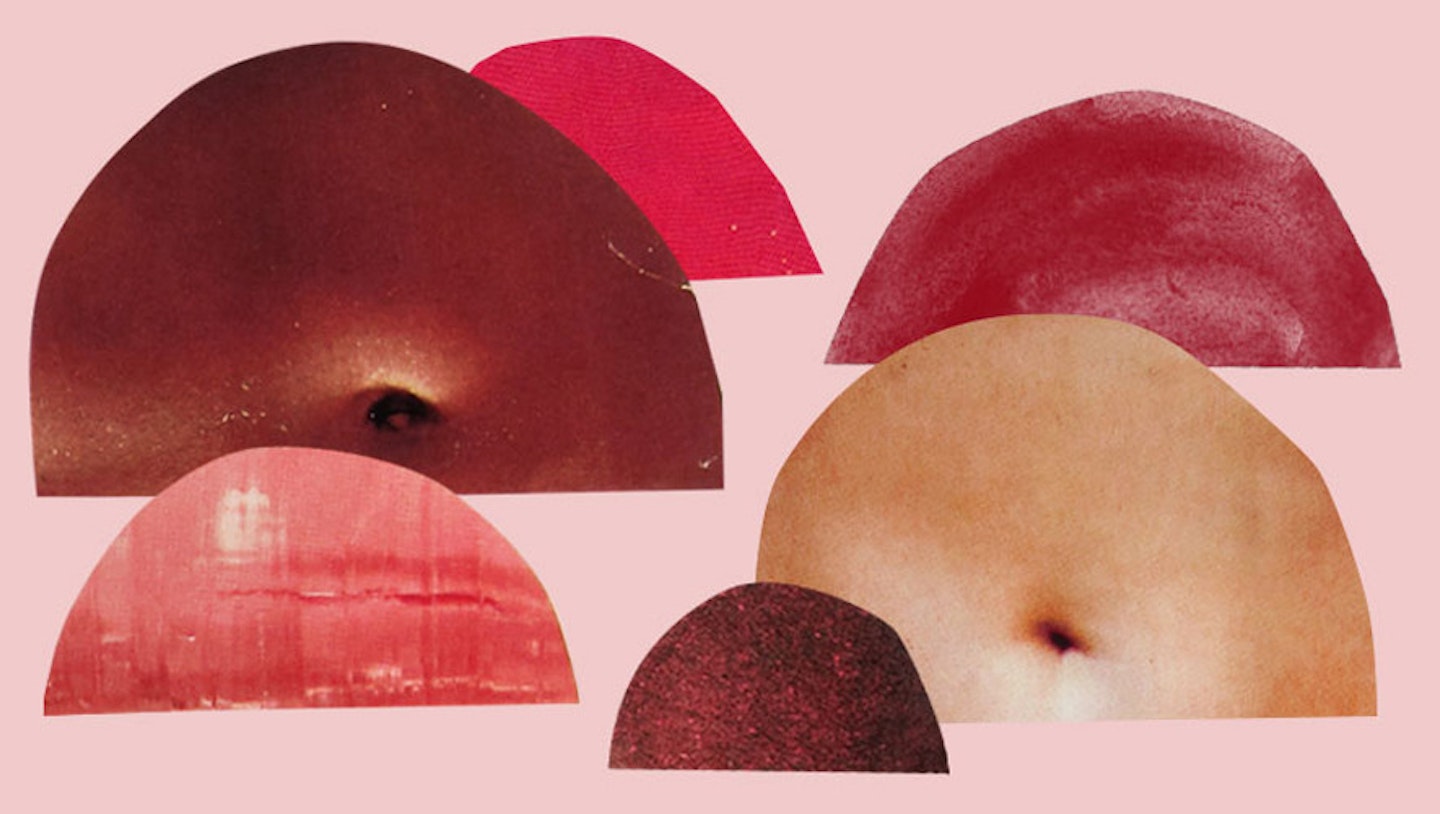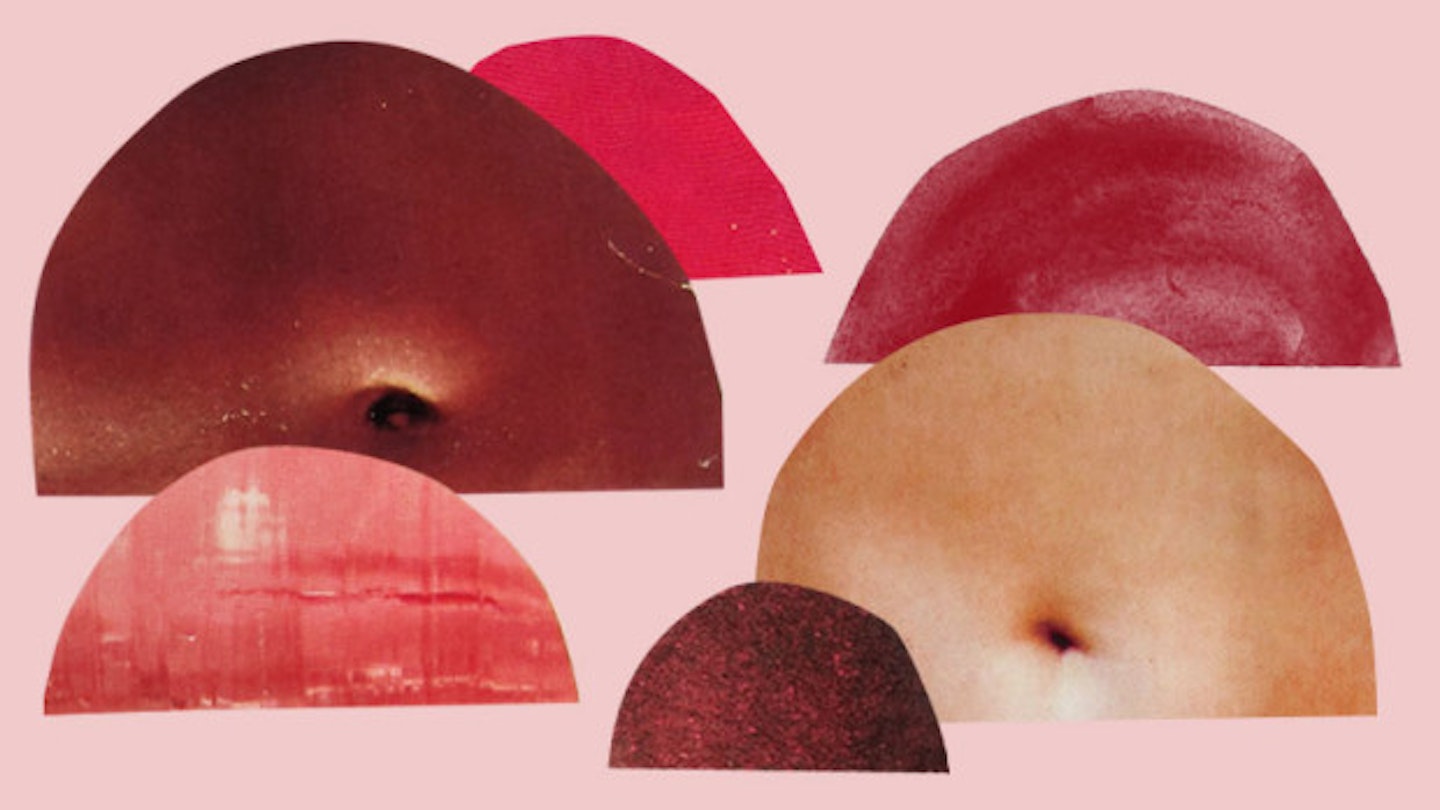Bloating. It’s become a dirty word thanks to the clean eating brigade and our obsession with ab cracks. We totally get it. Ours inflates to look like we’re about to pop out our firstborn typically right after we’ve inhaled an entire stick of garlic bread and* just before* we’re about to wear the most fitted thing we own to a party our ex is also attending. It’s a cruel world.
Aside from the fact our bellies sporadically looking like one of those bosu balls you find in the gym makes us feel less than sexy, do we really know much else?
Most of our knowledge on bloating comes from a particular celery-gnawing crowd who believe that ditching carbs, dairy, refined sugar - basically everything that makes life - will guarantee you a flat tummy for life (as well as glowing skin and mortality).
It’s not helping that abs you can grate cheddar on are the are the new thigh gap. However, encouragingly fitness bloggers Emily Skye and Tiffany Brien – blessed with fab stomachs – recently revealed that despite their healthy lifestyle bloating still haunts them.
However, with Irritable Bowel Syndrome in young women and intolerances - faux and genuine - on the rise, we’ve done the homework on whether our bloating fears are valid, or just a lot of (internal) air.
Why do I get bloated?
First things first, you’re not alone. Most of us have it to some degree thanks to our gut bacteria working on overdrive to digest our lunchtime Pret. But while too much gas plays a part, how much your tummy swells up has more to do with your lack of ab strength. Yes, really.
Dr Anton Emmanuel, consultant in gastroenterology at University College Hospital, explains: 'The issue of too much air in the intestine being the core reason for you being bloated is a big myth. It’s actually that the abdominal wall – the muscles at the front of your tummy – lose the ability to stay tense. So as you eat as the day goes on the increased blood flow causes your belly to expand.' Just great.
So you just need to do more crunches, right?
Wrong. Working your vulnerable obliques – which run across the lower part of your ribs down to your pubic bone - is much more useful for upping the game of your abdominal wall. 'Swimming and other slow, steady exercise will make these muscles much stronger and more coordinated than sit-ups which focus on your slightly less useful abs or six pack muscle,' says Emmanuel. So hold off on the HIIT and get jogging.
But why do I still seem to bloat straight after dinner?
It's possible you ate too much. 'People have different rates of gut motility, so if you eat a big meal your body is probably struggling to digest it all in the small intestine,' says Dr Richard Sarsam, consultant in gastroenterology at BMI The Princess Margaret Hospital. 'You can avoid it by eating small meals more frequently and making sure you chew your food properly.'
It may also be your post-lunch or dinner habits. 'Smoking makes people more bloated, although it’s not yet proven why, and chewing gum or having fizzy drinks can cause you to take in more air,' he adds.
Weirdly (and thankfully) alcohol doesn’t tend to have an effect on most people.
What about the food itself, like dairy?
Changing your diet can help - but annoyingly there’s no one-size-fits-all approach as every body is unique.
'You can get some bloating if you’re truly lactose intolerant because your body isn’t able to digest lactic acid naturally, and the bacteria in your gut have to work extra hard to break it down, which can make you gassy,' says Emmanuel. 'Altering your diet to be high protein and low in gluten, lactose, sugar and starch might mean you produce a bit less gas.'
However, in small amounts (if you’re not actually diagnosed as intolerant to anything) it probably won’t make a blind bit of difference, so stop going on about almond milk and just say yes to the cow.

Should I ditch carbs?
Yes and no. The belief that complex carbs are god’s gift to avo on rye is probably to blame if you eat super healthy but still bloat. 'Eating lots of wheat fibre, in high quantities in brown bread and brown pasta can be an issue,' says Sarsam. 'White bread and pasta is actually better in this respect.'
Aka it’s time to reintroduce the bagel. YES.
Beware also of onions, garlic apples, peaches and pears. 'They’re high FODMAP foods which your gut bacteria struggles to digest,' he adds.
Will doing a massive poo de-bloat me?
It might feel like you’ve just passed the Empire State Building, but doing a ginormous shit will sadly not solve the problem. 'The volume of a stool is relatively small compared to how much bloating there is. Similarly a hamburger – which is nowhere near the size of a nine-month fetus plus fluid – is not making you look pregnant,' says Emmanuel. 'It’s not simply a question of putting stuff there and getting rid of it – it’s much more subtle.'
Why am I bloated on my period?
Back to your abdominal wall (yes we think it sounds pretty stupid too). 'During your menstrual cycle your hormones change the tension in these muscles and make them less strong,' explains Emmanuel. 'They also slow down the bacteria in your gut.'
As if we didn’t have enough to feel rubbish about when we’re on.
How come I also swell up after sex and exercise?
Yes having a shag and working out is to blame too.
'They push the blood flow around your body' says Emmanuel, and sometimes into the abdominal wall, making your stomach expand.
Hot.
What’s IBS got to do with bloating?
Your bloat could also be down to this common condition – 1.5 times more likely to happen in young women - which is usually caused by a stressful lifestyle and diet that your body is reacting badly to. 'It’s on the rise in females most likely due to the anxieties that a busy modern day life can bring,' says Sarsam. 'Certain changes to diet, like avoiding wheat and dairy, can help reduce symptoms in 40% of IBS patients.'
But why am I bloated all the time?
Most of the time it comes and goes and just makes you feel a bit rubbish in a hungover kinda way. Annoying but pretty bearable. But, if it’s painful and permanent – or hangs around for a few consecutive days – it could be something more serious.
'Sometimes bloating can be indicative of conditions like ovarian cancer or bowel cancer,' says Sarsam. 'However it’s very rare – 5000 cases a year when you think that 20% of the population get very bloated– and it’s important to remember that you would have other symptoms in addition to bloating, such as changes in bowel habits, weight loss and rectum bleeding.'
Make an appointment with your GP if you’re unsure.
Like This? You Might Also Be Interested In...
This article originally appeared on The Debrief.
